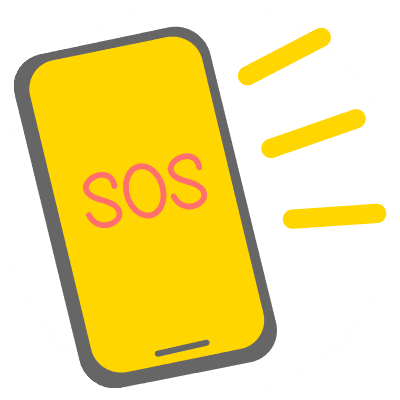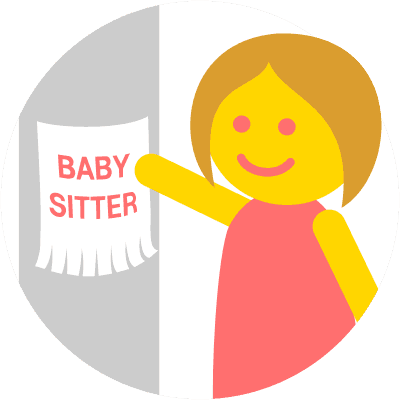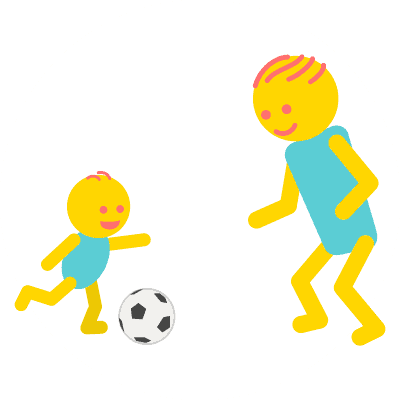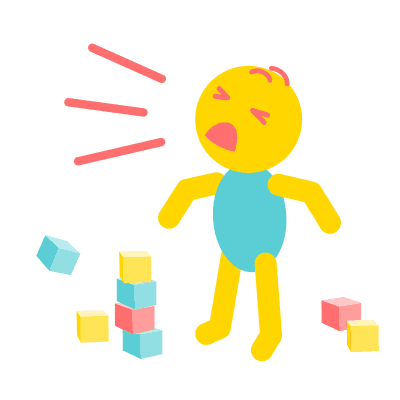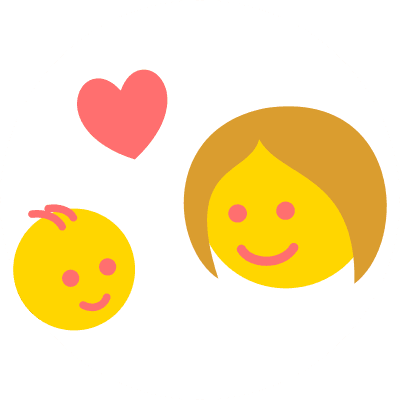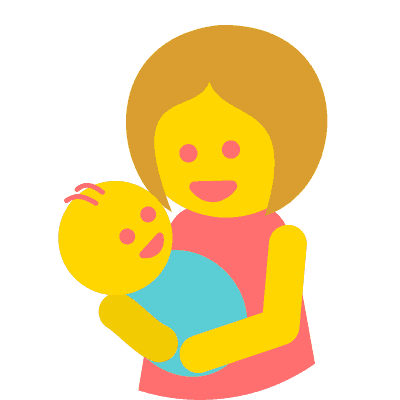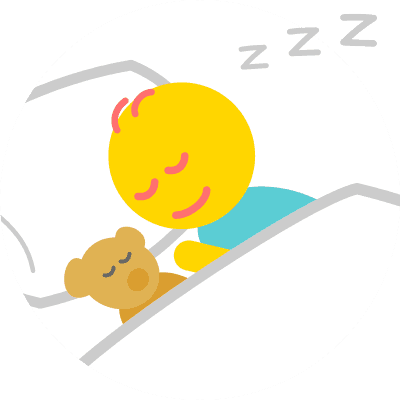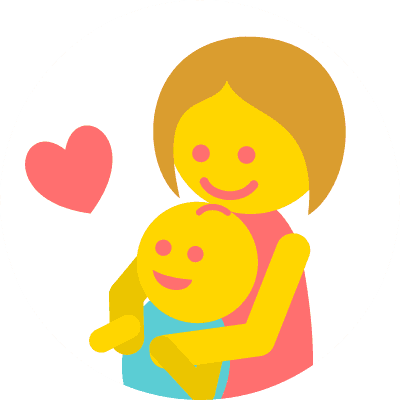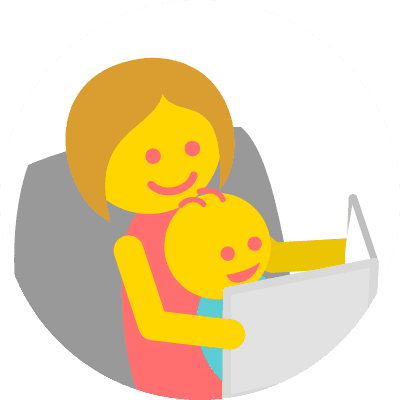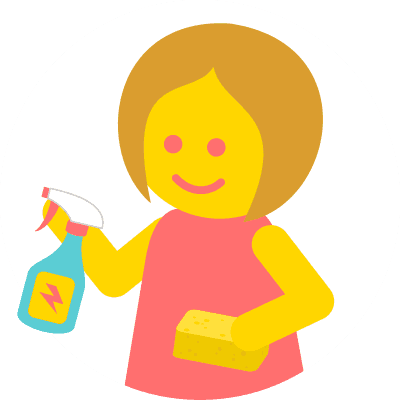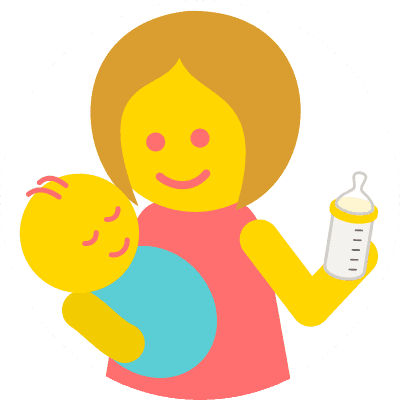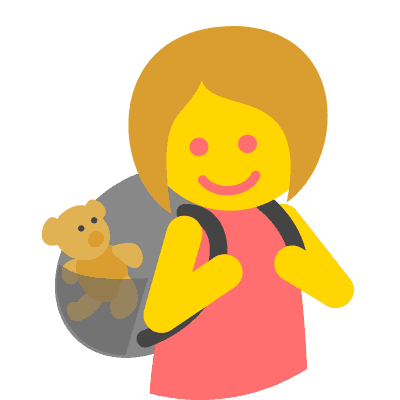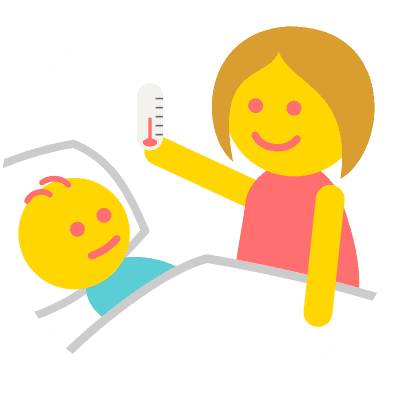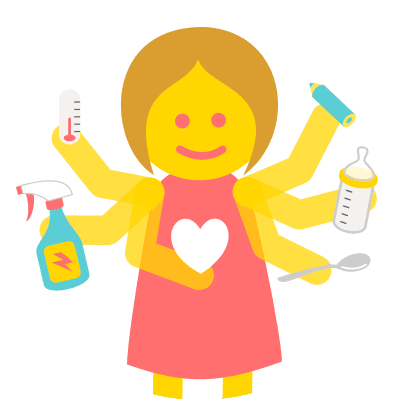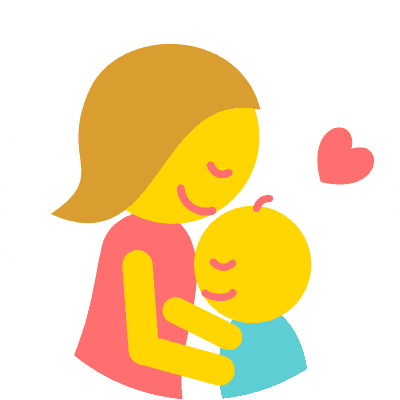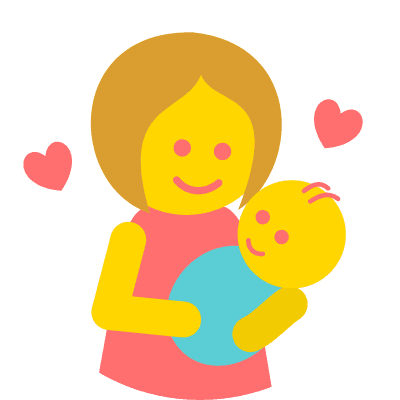Babysitters: Helping Families Get Back To Work Post-COVID


Written & Illustrated by
Matthew James Taylor
Kidsit Founder, General Manager

Medically Reviewed by
Gina Maria Jansheski, MD, FAAP
Board-Certified Pediatrician, Medical Reviewer
We're starting to see the COVID-19 situation begin to stabilize in some countries, and parts of the world are returning to some sense of normalcy. However, the daily lives of parents and children are still very different than before the pandemic. Babysitters are fast becoming the heroes we need to help get families back to work.
How can babysitters help families get back to work post-COVID? Some working parents will need short-term babysitters to watch their kids if they get sent home sick from school or group childcare settings. Other parents will want to hire a full-time sitter as an alternative to daycare or school to minimize their child's exposure.
In this article, I'll describe the different roles that babysitters are filling in the post-COVID world. I'll explain what parents will be looking for, as well as some things you'll want to learn—like how to help kids cope with stress and safety protocols that you should follow.
Why Families Will Need Additional Help Post-Pandemic
Even with a vaccine, experts are saying that this virus will likely be with us for years to come. We may go through periods with higher or lower infection rates in different parts of the world at varying times. But overall, it's unlikely that things will go completely back to normal any time soon.
As a result, precautions like masks and social distancing are something that will stick with us for a while.
There are a bunch of reasons why families will need babysitters more than ever, especially as COVID restrictions start to become less strict.
Here are some of them.
Limited Childcare Options
Daycares and childcare centers may have to reduce the number of children per facility to meet government requirements.
That means not every child who previously had a spot will still be able to receive care. Parents will need to look for alternatives.
More Stringent Rules When Someone is Sick
Schools and childcare centers are playing it safe and doing their part to minimize the spread of COVID-19.
In some areas, children are being sent home with any sign of cough or sneeze, fever, headache, diarrhea, or other common conditions. They are also being sent home to quarantine for 10 days if even one child or staff member tests positive in their immediate environment. And the likelihood of this happening increases during any surges of the virus in your area.
Parents might not be able to take a day off work every time their kid is sick (or someone else in their class is) and will need to turn to babysitters for help.
For more information on caring for a sick child, check out my article How to Babysit a Sick Child (10 Worry-Free Tips.)
Parents Are Still Working From Home
Some workplaces are not planning to let employees back into the office until a vaccine is available. That means they're stuck working from home for months or possibly even the next year.
It's hard to stay productive for 8 hours a day with one or more little ones running around. Some parents are hiring a full-time babysitter to watch their kids while they work, even if they're still in the same house. Others will want you to babysit kids at your house so that they can work in peace and quiet in their home office.
More Non-Traditional Hours
Parents are starting to work different hours than they previously have. If they've been laid off from their job, they might need to pick up night shifts or other jobs outside of their regular 9-to-5 to pay the bills. They'll most likely need childcare for any time that their child isn't in school.
Flexibility Will Be Key
I believe that flexibility is the one characteristic that parents will most appreciate in a babysitter for some time to come.
It seems like our entire world is still in a constant state of flux. Different restrictions and requirements seem to change from week to week, and it can be hard to keep up.
One week you might not get any hours at all as a babysitter. The next week the kids might not be able to attend school and will need a babysitter full-time while they learn from home.
Parents are likely to need more one-off babysitters when they can't afford to take a day off work. You might be able to make a lucrative career as a "sick-day babysitter."
Instead of babysitting every day for the same family, you might have a steady daily inflow of work for a new family with a sick or quarantined child.
This kind of work is less secure, and there's more preparation required. Plus, you're always in a new location and dealing with new children, so it can be quite an adventure. However, you can also charge more for the extra time and effort required.
Some Parents May Want Less Flexibility
While some parents may look to more short-term babysitters and increased flexibility, others may actually want the opposite.
There are news stories almost every day about the most recent school or daycare center to have a COVID-19 outbreak. Parents may want dedicated one-on-one childcare for their kids in order to limit exposure to COVID-19. We could see more parents pulling their kids out of group daycare settings and opting for private childcare.
This is particularly true for children with disabilities or other medical conditions who may require additional precautions.
Children who meet the following criteria, in particular, may be at a higher risk of becoming infected with COVID-19:
- Kids with limited mobility or who can't avoid coming into close contact with others because of their care needs
- Kids who might be unable to communicate symptoms of illness
- Kids who are blind or have low vision (more reliance on touch)
- Kids who have trouble understanding or practicing things like social distancing and hand washing
- Kids with sensory, cognitive, or behavioral issues that make wearing masks and social distancing difficult
If you're currently working as a part-time babysitter and want to keep your hours up, now may be the perfect time to find a more secure full-time job as a babysitter with regular hours and pay.
Thinking of running a babysitting business out of your home? Don't miss out on the important information in my article Babysitting From Home (Pros, Cons, Laws, & Requirements)
Help To Keep Families Safe
You're definitely familiar with the usual COVID-19 precautions by now.
You already know that you should be wearing a mask when you're at work and keeping a distance of six feet between yourself and the kids you're babysitting as much as possible.
There are some other things you can do that you may not have considered to help keep yourself and families safe.
- There's a chance of getting sprayed or splashed with bodily fluids while babysitting. Certain activities, like changing diapers, put you at a higher risk. In those situations, you should use extra personal protective equipment like a face shield, eye protection, a gown, and disposable gloves. It might feel a bit overdramatic if you're not used to it, but it's the best for everyone's health. This is important to speak with families about, so you can collaborate on the best practices for each situation.
- Even if you aren't at risk of getting sprayed with something, it's best to wear disposable gloves whenever handling kids. That includes while dressing, feeding, bathing, handling tissues, and even when doing laundry.
- You should already be washing your hands a lot while babysitting. However, it's extra important to wash your hands when entering or leaving the house, as well as after taking your facemask on or off or adjusting it. Carry a small bottle of hand sanitizer with you for places where soap and water aren't available.
- Likewise, you should be cleaning and disinfecting surfaces and objects more often than usual. That includes toys, tabletops, bathroom fixtures, doorknobs, phones, or anything else that kids touch frequently.
- When you get home from babysitting, put your work clothes in the washing machine as soon as possible. Wash them on the warmest setting the fabric will allow for, and dry them completely.
- Monitor yourself for symptoms. Don't go to babysitting jobs if you feel yourself getting sick or have been in contact with someone that has any symptoms of illness.
- Follow whatever activity restrictions are present in your community, as those will be based on the prevalence of the virus in your area. Avoid high-risk settings, such as weddings, bars, and crowded indoor spaces (elevators, shops, public events), especially those where you have to take your mask off (to eat and drink). Parents will want a babysitter that has followed guidelines and taken precautions to avoid exposing their family.
Clean and Sanitize Toys Frequently
Special attention should be given to cleaning and sanitizing toys, electronics, and other objects kids touch frequently. Young children are continually putting toys in their mouths or otherwise getting body secretions all over them.
Toys should be sanitized on a regular basis. Once toys have been played with, set them aside to be cleaned in a place that's out of reach from kids.
Try to avoid toys that can't be easily sanitized or cleaned.
Plastic toys that are dishwasher safe can be put on the top rack and sanitized.
Fabric toys like stuffed animals and blankets are usually safe to go in the washing machine unless the label says otherwise. Avoid toys with batteries or stuffies that contain beans or foam beads.
Wooden toys like blocks or board books should be wiped down with a cloth using mild soapy water or white vinegar. Don't just dunk wooden toys in water, because they could warp!
What kind of cleaning should a babysitter do? My article Should Babysitters Clean? (How to Set Parent Expectations) will explain it all!
What If One Of Your Babysitting Clients Or Their Kid Tests Positive For COVID-19?
If you've been in contact with someone who has tested positive for COVID-19, it's best to go and get yourself tested as soon as possible.
You should immediately self-isolate according to the guidelines in your area. Notify all of your babysitting clients of the situation so they can contact their healthcare providers and take precautions as recommended. Most parents will be understanding and would rather have you cancel than work for them after you have been exposed to or suspect you may have COVID-19. Don't return to work until you have received a negative test result.
Regular face masks are not full PPE and are not enough to completely protect you from getting COVID-19. You should not babysit for a family that has tested positive unless you have the proper equipment.
In rare cases, you may decide that you have to babysit for a client. For example, you may need to watch a child while their parent is in the hospital with COVID-19 themselves. In that case, you should only babysit for that one family to prevent spreading the virus and take as many precautions as possible.
If you become sick with COVID-19, stay home and self isolate for the period of time recommended by your healthcare provider. Make sure to notify your recent contacts so that they can take precautions also.
How sick is too sick for you to babysit? My article Should you Babysit when Sick? (How to Manage Parent Expectations) will help you decide.
Helping Kids Cope With COVID-19 Stress
Staying physically healthy is of first and foremost importance. But staying mentally healthy is also important.
Isolation is hard on children, just like it can be for grown-ups. Imagine hardly getting to see your friends or play with other kids for a year or more! Interaction with peers is especially important for children while they are still developing cognitive and social skills.
As a babysitter, you're in a unique position to help kids manage and cope with their stress, as well as model healthy behaviors and provide them with the support they need.
Here are some things you can do to help keep kids happy and healthy.
Teach Them How to Keep Their Body Healthy
Exercise and fresh air can help keep a child's immune system strong and better able to fight off illness and infections.
If the weather is nice, take some time to get outside and go for a walk.
Even on rainy days, you can stretch and do some basic kid-friendly yoga poses indoors.
Prepare Healthy Food
Make sure that the kids you babysit are getting proper nutrition. That means lots of fruits and vegetables that are full of vitamins and minerals.
Avoid processed snacks or foods like hot dogs or out of boxes like macaroni and cheese. Even though they're quick and easy to make, they are mostly full of empty calories and chemicals (how do you think they stay fresh in those boxes for such a long time?).
For picky eaters, ask them what kinds of healthy foods they enjoy eating. Not every kid will want to eat broccoli. However, most will try some apples dipped in peanut butter, cut veggies dipped in ranch dressing, or "ants on a log" made with celery, raisins, and cheese spread.
Create A Calmer Atmosphere
Set some time aside to take some deep breaths if you notice that a child seems like they're getting a bit stressed out. Even just breathing slowly in and out deeply 5 times can help calm down both kids and adults.
There are plenty of short guided meditations with peaceful music for kids on Youtube. Some are just a few minutes long, so even young kids should be able to sit still long enough to participate.
Try to avoid watching or listening to news stories around kids while you're babysitting. It can be upsetting for them to hear about all the bad things going on in the world. If they're flipping through the television channels and end up on the news, try to redirect them to something more kid-appropriate!
Make Sure They Get Enough Sleep
Getting plenty of sleep is another important factor in keeping kids happy and healthy.
At night, be sure that kids are getting to sleep at their usual bedtime after a calming nighttime routine.
Younger kids may need a nap or two per day to keep them from getting cranky. Ask parents what their usual sleep schedule is, and try to stick to it as much as possible. Avoid letting them sleep too long or nap too late in the day; they’ll be more likely to keep parents up at night, who won’t thank you for it.
Help Them Safely Connect With Friends
Kids might feel lonely and sad from being stuck at home and not getting to see their friends, especially if they're doing online learning from home because of COVID-19 restrictions.
Try to think of ways that they can connect with others safely while still maintaining appropriate social distancing. That might be meeting at the park for a bit to talk to each other from a safe distance. Or you can help arrange a video or audio call with their friends using a family phone or computer.
Conclusion
As the COVID-19 situation begins to wind down, babysitters will play a key role in helping parents get back to work or just get some time for themselves.
Some parents may need to hire flexible short-term babysitters when their children are quarantined or need to stay home sick. Other parents will want to hire full-time babysitters to limit exposures or simply because regular daycare options will have limited capacity.
For a good percentage of the day, you will be making important decisions as a babysitter that help keep children happy and healthy.
The post-COVID world will open up new types of opportunities for babysitters. This might be your chance to go from being a part-time to a full-time sitter or to be available for flexible assignments. So even though this situation will continue to be challenging for some time, you get to decide what kind of babysitter you will be going forward!

